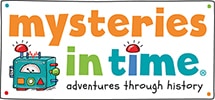
Morse Code
Morse Code: The Secret Language of World War II
In today’s digital era, we communicate in ways that would have seemed like science fiction during the 1940s. But during World War II, one of the most crucial forms of communication was a system developed almost 100 years earlier: Morse code. This “dot and dash” system, seemingly simple, played a surprisingly significant role in the war.
The Basics of Morse Code
Morse code was invented by Samuel Morse and Alfred Vail in the 1830s for use with their new invention, the telegraph. It’s a system that uses a series of dots (short signals) and dashes (long signals) to represent each letter of the alphabet and numbers from 0 to 9. For example, the letter ‘A’ is ‘.-‘ and the number ‘1’ is ‘.—-‘.
Morse Code in War Times
When World War II broke out, Morse code became invaluable. It was used for a variety of critical communications: from the front lines, between ships at sea and even from spies deep within enemy territory.
On the Battlefield
On the front lines, soldiers used Morse code to send critical tactical information back to their bases. Radios were often the only form of communication in these scenarios, and since voice transmissions could be easily intercepted and understood, the coded nature of Morse provided a layer of security.
At Sea
Morse code was crucial at sea, where radio silence was often required to avoid detection by the enemy. In such situations, ships communicated using light signals. The short and long signals of Morse code translated perfectly to short and long flashes of light.
In the Shadows
Perhaps the most dramatic use of Morse code was in the world of espionage. The British intelligence organisation, Special Operations Executive (SOE), trained their agents, known as “secret listeners,” in Morse code. These agents could transmit vital intelligence from behind enemy lines. They used compact, easy-to-hide transmitters to send coded messages, which could provide the Allies with a strategic advantage.
The Legacy of Morse Code in World War II
While it’s easy to view Morse code as an antiquated system in the age of digital communication, its impact during World War II is undeniable. It was a communication tool that, in the hands of both soldiers and spies, played an important role in the successful prosecution of the war. Today, it stands as an enduring symbol of the ways communication has evolved and served us throughout history.

